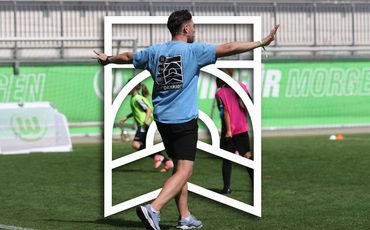Developing Thinkers in Sport: Andy Abraham on Decision Making in Youth Coaching
In his compelling presentation, Dr. Andy Abraham—Head of Subject for Sport Coaching at Leeds Beckett University—explores the complex and essential role of decision making in youth sport. Andy emphasizes that developing young athletes is not just about physical skills, but also about nurturing their ability to think, adapt, and make smart decisions in dynamic environments.
Abraham begins by framing decision making as a central challenge for coaches. In youth sport, players are constantly faced with choices—when to pass, where to move, how to respond to pressure. These decisions are influenced by a range of factors, including perception, experience, and emotional regulation. For coaches, the goal is to help children become better decision-makers, not just better performers.
He introduces three key perspectives on decision making drawn from research in cognitive science and sport psychology:
Information Processing – This model views decision making as a logical, step-by-step process where players analyze the situation and select the best option.
Ecological Dynamics – This approach emphasizes the interaction between the athlete and their environment, suggesting that decisions emerge naturally from the context.
Naturalistic Decision Making – Focused on real-world scenarios, this model highlights how decisions are made under pressure, often based on intuition and experience.
Abraham argues that no single model is sufficient on its own. Instead, effective coaching involves understanding and integrating these perspectives to suit the needs of individual athletes and the demands of the sport.
A major theme of the presentation is the importance of representative learning environments. Abraham encourages coaches to design practices that mirror the complexity of actual games. This means creating scenarios that require players to read cues, make choices, and reflect on outcomes—rather than simply executing drills.
He also stresses the value of guided discovery and questioning techniques. Rather than giving direct instructions, coaches should prompt players to think critically and explore different solutions. This not only improves tactical awareness but also fosters autonomy and confidence.
Abraham concludes with a call for coaches to embrace their role as educators. By prioritizing decision making, they can help young athletes become more adaptable, resilient, and self-aware—skills that extend far beyond the playing field.
His message is clear: coaching is not just about teaching sport, but about developing thinkers. Through thoughtful design, reflective practice, and a deep understanding of how decisions are made, coaches can empower children to thrive in sport and in life.
You can watch the full presentation below
Comments
Related Pages


